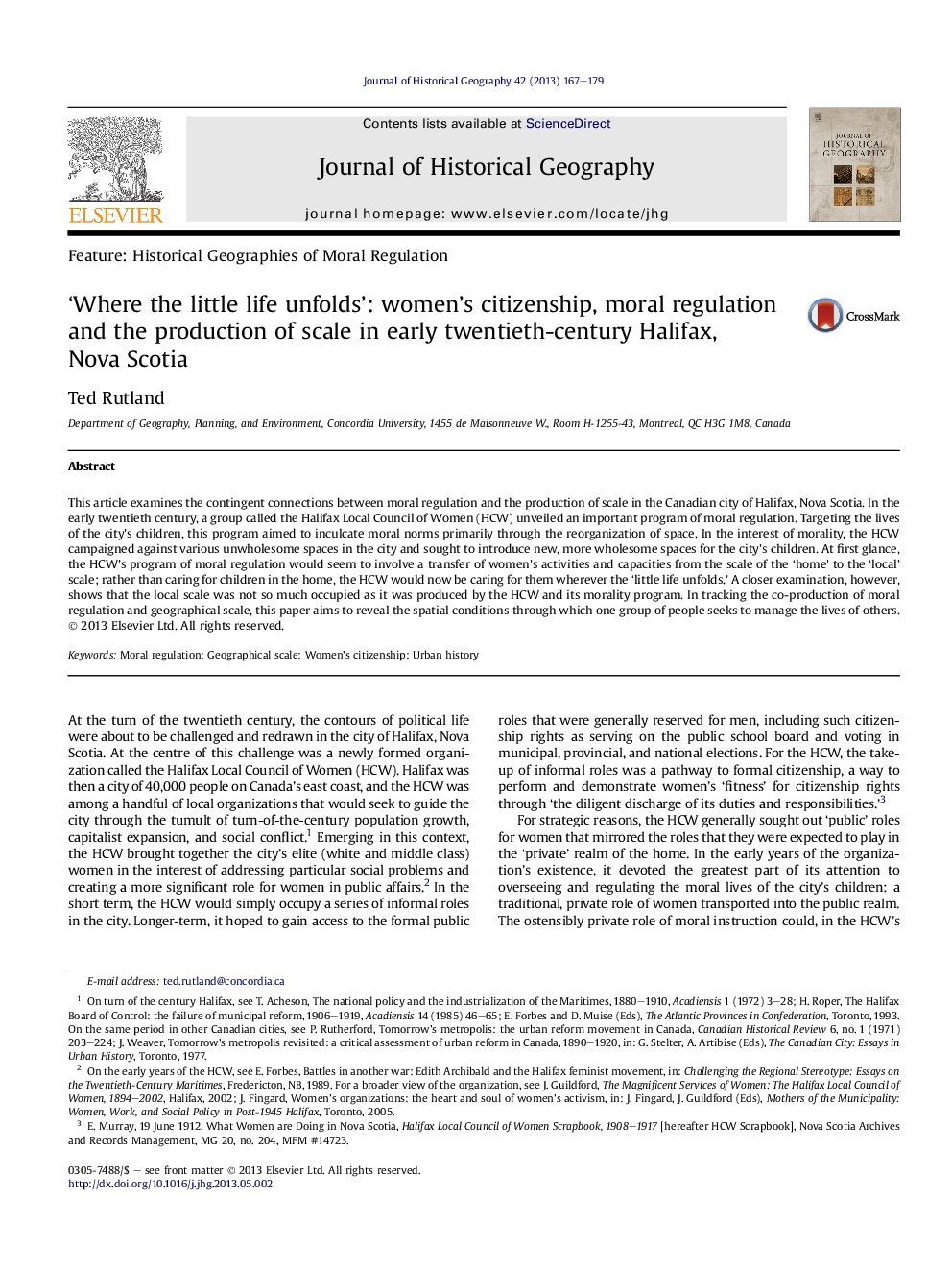| Article ID | Journal | Published Year | Pages | File Type |
|---|---|---|---|---|
| 7448437 | Journal of Historical Geography | 2013 | 13 Pages |
Abstract
This article examines the contingent connections between moral regulation and the production of scale in the Canadian city of Halifax, Nova Scotia. In the early twentieth century, a group called the Halifax Local Council of Women (HCW) unveiled an important program of moral regulation. Targeting the lives of the city's children, this program aimed to inculcate moral norms primarily through the reorganization of space. In the interest of morality, the HCW campaigned against various unwholesome spaces in the city and sought to introduce new, more wholesome spaces for the city's children. At first glance, the HCW's program of moral regulation would seem to involve a transfer of women's activities and capacities from the scale of the 'home' to the 'local' scale; rather than caring for children in the home, the HCW would now be caring for them wherever the 'little life unfolds.' A closer examination, however, shows that the local scale was not so much occupied as it was produced by the HCW and its morality program. In tracking the co-production of moral regulation and geographical scale, this paper aims to reveal the spatial conditions through which one group of people seeks to manage the lives of others.
Related Topics
Social Sciences and Humanities
Arts and Humanities
History
Authors
Ted Rutland,
